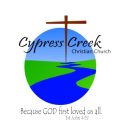ECCLESIOLOGICAL ETCHINGS
May 2, 2025
Last night, CCCC hosted the Interfaith Prayer Walk on the National Day of Prayer. I had two fascinating conversations that were sort of outside of what was really planned, but aren’t those usually the best conversations? One was with a longtime friend from the Jewish faith, and another with a new friend from the Quaker tradition. Both of them talked, from different perspectives, about an emerging expression of faith. Though it was not the language either one of them used, I sort of walked away thinking that I could summarize both conversations as people seeking a faith that is not primarily about what we oppose but what we celebrate, affirm, and the things to which we seek to give life and energy. We live in a world where it is so easy to find some enemy to make as the scapegoat of all the problems of the world, and suddenly those types of people embody everything we oppose. I have more conversations than I wish where people I am conversing with tell me who is to blame, who they hate, and why those others are the real problem. 97 out of 100 times, I can prove in 45 seconds why their assumptions about those “others” are inaccurate, if not entirely wrong. Yet a talking head on a nutty late-night news show told them it was all true, and it fed their insecurities and their nostalgia. And so, instead of doing some research, they accepted it as gospel truth. I’m painting with a broad brush, but early Christianity was known for the good it did, the positive and hopeful attributes it stood for, and the joy it radiated. Sadly, that’s not how most non-Christians in the United States would describe Christianity. Let’s try to do better. Let’s become clear in regard to what Jesus-like attribute do we seek to emulate and what positive values do we seek to bring into the conversation.
Thank you, Lord Jesus, for giving us a glimpse of what a life looks like that stands for something that is life-embracing, life-giving, and life-changing. Amen.
